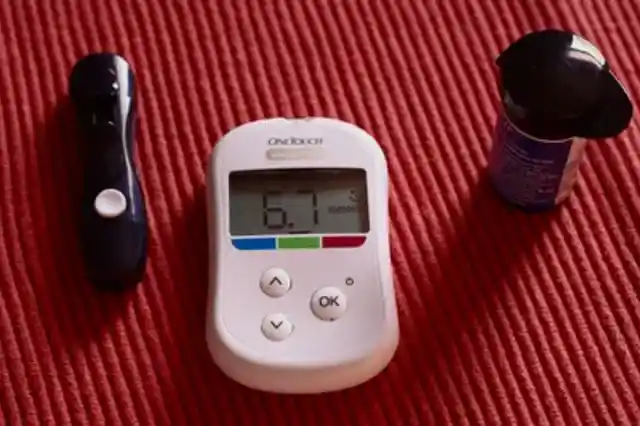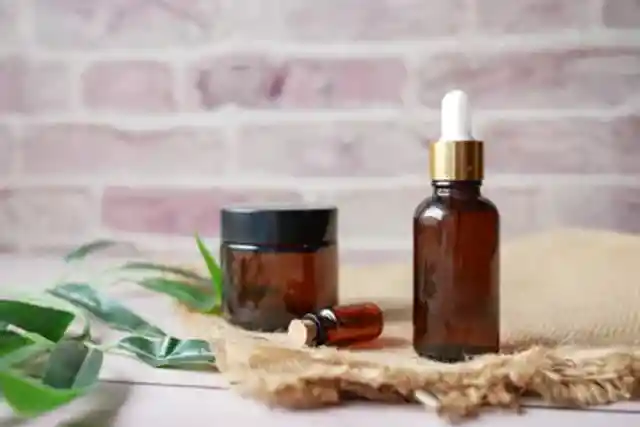Lavender can help you sleep
The next time you're feeling stressed, in pain, or just need a good night's sleep, you may want to consider lavender essential oil. Lavender is one of the most popular essential oils for aromatherapy because of its versatility, gentle smell and many health benefits.


Lavender can help ease symptoms associated with stress and pain including anxiety, depression and headaches. It can also help with sleep issues including insomnia and restless leg syndrome. The relaxing scent of lavender has even been shown to reduce blood pressure.
Tea tree can reduce acne
Tea tree oil is one of the most useful (and underrated) oils you can have in your home. It's is made from the leaves of the Melaleuca alternifolia plant, which are steam-distilled to extract the essential oil. The oil is colorless or slightly yellow in appearance and has a strong and distinctive smell.


Tea tree oil is antiseptic, antimicrobial, and antifungal properties make it an effective treatment for almost all kinds of infections. It can be used in a variety of ways for skin issues; these range from treating acne to combating athlete’s foot and ringworm.
Frankincense can fade scars
Frankincense is known as the "king of oils." This soothing oil has been used for centuries as a remedy for a number of ailments. It can help with inflammation, mood and sleep, and it's an antiseptic that can improve asthma, clear up acne and prevent gum disease.


Frankincense oil is typically used in aromatherapy. However, some people apply frankincense oil to their skin to help with scarring, stretch marks or other issues. Because frankincense has anti-inflammatory properties, be sure to dilute it before using it on your skin.
Peppermint can ease headaches
Peppermint oil is a popular scent for many people, and it’s also useful for a variety of health benefits. It's one of the oldest medicines known to man—it's documented that the ancient Egyptians used it for both culinary and medicinal purposes; everything from easing headaches to supporting digestion.


Peppermint oil is a wonderful, natural product that, when used correctly, can add a lot of value to your health and the health of your family. Peppermint tea can also help with stomach problems - but keep in mind this is not the same as peppermint essential oil, which definitely should not be ingested orally.
Eucalyptus can fight off colds
The runny nose, sore throat, and coughing of cold season can make it hard to breathe unimpeded. If you have a stuffy nose, try diffusing a few drops of eucalyptus essential oil in boiling water. Eucalyptus is also great for fighting off colds, as it helps relieve fever and pain.


Eucalyptus oil also contains antimicrobial and anti-inflammatory properties. However, be sure to dilute eucalyptus oil before applying topically to your skin or putting it in your mouth. If you have children or pets, keep eucalyptus oil out of their reach and use caution.
Lemon can calm sore muscles
Lemon oil is very versatile. You can diffuse it to create a calm, uplifting atmosphere in your home; apply it topically to your skin to reduce inflammation and pain; or, you can even add a few drops to your drinking water for an antioxidant boost.


Lemon oil is safe to use topically on your skin, but care should be taken to avoid sunlight after its application. Like all citrus oils, exposure to sunlight after using lemon oil can make your skin more sensitive and increase your chances of sunburn.
Lemongrass can lower blood sugar
Lemongrass oil has a strong, citrusy aroma. It can relieve stress, anxiety, and depression. It also has antibacterial properties and can be used to heal wounds. Some studies have shown that it can even lower blood sugar levels in those with type 2 diabetes.


You should dilute lemongrass oil with a carrier oil like almond or jojoba before applying it directly to the skin. This way you can enjoy all of its benefits without having to worry about side effects like sensitization or irritation.
Orange can be used as a cleaner
Orange oil is a type of essential oil that comes from the rinds of orange fruits. It's obtained by cold-pressing the rind and extracting the oil, then separating it using a carbon filter. Orange oil is known to have a delightful fragrance that's slightly sweet and citrusy.


Orange oil is a versatile product that can be used in multiple ways in your home. It should be kept away from children, so make sure you store it in a safe place. It can be used to clean your sink, kill bacteria and as a natural cleanser for floors and countertops.
Rosemary can increase hair growth
Rosemary is well known for its culinary uses, but it also has other benefits. Rosemary oil can be used to make soap, as a dietary supplement for your food or hair, or directly on your body for a variety of health benefits.


These benefits include improving brain function, promoting hair growth, reducing pain and stress, lifting your mood and reducing joint inflammation. That having been said, if you’re pregnant or have epilepsy or high blood pressure, it’s advised to avoid using rosemary oil.
Bergamot can reduce anxiety
Bergamot oil is a citrus-scented essential oil that's obtained from the peel of the bergamot fruit, which is a cross between an orange and a mandarin. It's used in perfumes, as well as in the flavoring of Earl Grey tea.


Bergamot oil is known to help with anxiety, depression and other mood disorders. It can lower blood pressure and help relieve aches and pains when applied topically with a carrier oil such as jojoba or coconut or when added to bath water.
Cedarwood helps with insomnia
Cedarwood oil is the essential oil extracted from the wood of the cedar tree, which grows in the northern hemisphere. Native Americans have used it for centuries to alleviate nervousness and to promote better sleep. It also has antibacterial and antioxidant properties, making it a good choice for a variety of skin conditions like acne.


Cedarwood oil can also help you sleep or deal with anxiety. You can add a few drops to an essential oil diffuser or a humidifier to help you relax at night, or put a few drops on your pillowcase before going to bed to help you sleep better.
Clary Sage can boost your mood
If you're feeling low or down in the dumps, you might be tempted to reach for a cup of coffee or an energy drink. Unfortunately, these stimulants can cause side effects that are just as bad as those you're trying to relieve. Instead, try using essential oils to lift your mood and your energy.


Add a few drops of clary sage in a 10ml roller bottle with a carrier oil, and roll it over your stomach each morning. This can help you feel energized and uplifted, increasing your concentration levels and emotional well-being for the day.
Arnica can relieve joint pain
Arnica oil is a topical solution that many people use to help relieve minor aches and muscle soreness, especially after a tough workout. It’s considered a natural—and botanical—source of relief for common issues such as bruising, sprained muscles and joint pain, and can be used by anyone.


For the uninitiated, arnica oil is made from the leaves and flowers of the arnica plant. The oil itself is derived via steam distillation or cold pressing—the latter being more common—and can be applied directly to the skin. It’s often used in conjunction with massage therapy or alone for self-care at home.
Chamomile can help you relax
Chamomile oil is well-known for its soothing effects. It’s used in a variety of ways to reduce nervous tension and irritability, and it’s thought to be a natural remedy for insomnia. Its scent is also said to promote overall feelings of well-being, which can help you feel more relaxed when the going gets tough.


Chamomile essential oil is an all-natural aromatherapy agent that can help you unwind and get a good night’s sleep, calming your nerves. Chamomile may also help reduce menstrual cramps by relaxing the uterus and relieving muscle spasms. As with peppermint, remember that chamomile oil and chamomile tea aren't the same thing; don't drink the oil!
Cinnamon can be used as an insect repellent
With its warm, spicy scent that evokes the feeling of a cozy night in front of a fireplace, cinnamon essential oil is best used in aromatherapy for an emotional lift. More than just a tasty spice for baking, it soothes anxiety and promotes ease and comfort.


As if that wasn't enough, it's used to combat constipation and protect skin against insects. When out on the town or when you have guests over, make sure to keep this wonderful oil nearby, as it's a great way to make an impression!
Geranium can reduce cellulite
Geranium oil can be used in a number of applications to aid with skin conditions including cellulite. The oil promotes healthy circulation and help improve the appearance of cellulite, leaving you looking healthier without any of the side effects associated with surgical procedures.


Geranium oil is a great natural alternative to conventional cellulite creams that contain harsh chemicals and additives. It is very effective in reducing fluid retention, constricting the blood vessels, toning the skin and reducing inflammation. It is also useful for treating acne by tightening pores and preventing further breakouts.
Ginger can aid healthy digestion
Ginger is a versatile and tasty ingredient, and it's also great for easing nausea, heartburn, stomach aches, and even gas. Taking this powerful root in the form of fresh ginger root or ginger tea can help to relieve symptoms of indigestion and motion sickness.


Because ginger is such an effective remedy for digestion-related problems, it's a popular addition to many herbal supplements. Some people also prefer to use ginger essential oil because it doesn't contain the fiber found in fresh ginger root—this way you get all of the benefits without any fussiness.
Ylang ylang can reduce the risk of heart disease
Ylang ylang is a type of flower that comes from the same family as magnolias and gardenias. It's native to Madagascar, but now grows in tropical regions all over the world. Some people use it to perfume their homes, and some people use it in essential oils to help them relax.


Sandalwood can decrease depressive symptoms
When you get a massage, do you enjoy the feeling of your skin being pampered or is it the scent of the oils being rubbed into your skin that make you feel relaxed? If it's the latter, try using sandalwood essential oil.


In a 2017 study, researchers found that patients experienced fewer depressive symptoms when they were given massages with sandalwood-infused oils. The smell of sandalwood can also help sharpen your focus and attention span, which makes it an excellent addition to a relaxing massage.
Patchouli can treat skin conditions
Patchouli, as an essential oil, has been used for centuries. But the fragrance is now known for its role in various aromatherapy products and holistic medicine. It's now easy to find patchouli-scented candles, sachets and massage oils in mainstream retail stores.


Patchouli oil can be used topically on the skin and hair to reduce acne outbreaks, dermatitis and dandruff, as well as to manage scalp conditions like eczema, psoriasis or alopecia. The popularity of patchouli has increased rapidly over the past several years, thanks in part to its use in aromatherapy treatments.
Vetiver can treat burns and cuts
If you’ve ever taken a walk through an exotic garden, you might have come across vetiver. It’s an aromatic plant, a perennial bunchgrass native to India that is also grown in tropical climates around the world. Vetiver has a strong, earthy fragrance and has been used for centuries in medicine.


In South Asia and West Africa, vetiver is used to treat burns, acne, open wounds and cuts. Alternatively, it can be used as a poultice for skin problems and infections. It can also make the body function more efficiently, and it helps tropical climates repel termites.
Anise can improve lactation in pregnant women
Anise Essential Oil is derived from the seeds of the Pimpinella anisum plant. It's very fragrant and has a sweet, spicy aroma—but if you've ever chewed black licorice, you'll know that they smell surprisingly similar. In fact, many people utilize Anise Seed Oil in their products because of the pleasant aroma it lends to other blends.


This popular herbal remedy has been used for centuries in various cultures around the world to fight respiratory problems like coughs and colds as well as to treat digestive issues. Anise essential oil has also been known to help induce menstruation and to help promote lactation when taken by breastfeeding women.
Cardamom is an aphrodisiac
Cardamom is a very interesting oil. It's very pungent and has a sharp, spicy aroma. This makes it a good option if you're looking for an uplifting scent to add to a product intended to increase energy. Because it's considered an aphrodisiac, it's also worth considering for use in products geared toward romance.


In aromatherapy, the essential oil of cardamom is used as a carminative, antispasmodic and stimulant to the digestive system and brain. It can be helpful in soothing stomachaches and cramping caused by gas or indigestion. Cardamom oil may also help ease muscle spasms and tension headaches.
Elemi can support respiratory health
Elemi oil, derived from the resin of the elemi tree, is a powerful tool for supporting respiratory health. It contains an abundance of monoterpenes (a type of terpene), which are chemical compounds that are known for their ability to support healthy breathing and the body’s response to colds and flu.


Elemi oil is great for wound healing, especially when combined with other oils such as copaiba or frankincense. It can be used in a variety of ways—diffused into the air to cleanse a space, used topically on wounds or skin irritations or inhaled as a steam inhalant.
Fennel can help you lose weight
The scent of fennel is sweet, warming, and slightly bitter. It's known for being energizing, assisting with relaxation, and soothing to the stomach. Fennel's aromatic, carminative qualities also make it a great addition to blends for weight loss. Its essential oil contains about 80% anethole, which is a potent detoxification agent.


Aromatherapists believe anethole helps stimulate metabolism and may help curb the appetite. Studies are inconclusive on this claim, but aromatherapy experts do say that inhaling fennel essential oil can help support weight loss. You can add a few drops of fennel essential oil to your favorite inhalation blend.
Grapefruit can wake you up
Grapefruit essential oil is an incredible oil that needs to be in every household. This citrusy oil is a great wake up call in the morning, but it can be used to uplift and energize throughout the day as well.


Grapefruit oil works wonders on oily skin and hair, much like other citrus oils do. However, if you are on any medications for cholesterol, blood pressure or depression, be sure to double-check whether these are safe to take with grapefruit products, as this can be an issue.
Hyssop can relieve menstrual cramps
Hyssop is a gorgeous essential oil with a rich, deep blue color. Its scent is fresh, minty, and herbaceous—it's said to be reminiscent of mint but with a woody undertone. Although it has a strong aroma, it's not an overly warming oil and can actually have a cooling effect when diffused or applied topically.


Historically, this herb was used for medical purposes throughout the ages by both Western and Eastern cultures alike: in Ayurveda and traditional Chinese medicine, its uses include colds, coughs, fevers, arthritis, digestive problems (including gas), menstrual cramps, skin issues like acne and psoriasis, kidney disorders, stress relief, and much more.
Cubeb is a pain reliever
Cubeb Essential Oil, from the Piper cubeba plant, is a unique essential oil for several reasons. The first is that its scent is primarily composed of sesquiterpenes and sesquiterpenols—compounds that are found in plants like juniper and rosemary. These compounds have a very pine-like scent, but lighter and less sharp than straight pine essential oil.


Cubeb is a pain reliever, which means that it can help to reduce pain caused by sore muscles or joint pain. It also helps to relieve chest pain and headaches. It can also help with rheumatism or arthritis as it can relieve the inflammation in the joints that often comes along with these conditions.
Neroli can help you cope with grief
Neroli essential oil is an inexpensive and effective way to promote emotional health. If you or a loved one suffers from depression, sadness, grief, or have had a recent loss, then a few drops of this oil on your skin might be the solution for you.


Neroli is used in aromatherapy treatments for these reasons as well as supporting positive emotions and encouraging happiness in people who use it regularly. Using the oil topically will help lift your moods by easing your feelings of sadness or depression.
Oregano is a strong antibacterial
Oregano essential oil is a potent antimicrobial essential oil. It is one of the strongest anti-microbial essential oils. Due to its strong antibacterial, antiviral, antifungal, and anti-parasitic properties, it can be used as a natural remedy for the treatment of various infections.


It has been used in folk medicine for the treatment of numerous diseases and ailments ranging from cardiovascular disorders to respiratory infections and skin diseases. By stimulating the lymphatic system, oregano essential oil helps to fight infections by improving the body's natural ability to destroy invading bacteria and viruses.
Myrrh can be used for oral health
Myrrh is a natural resin popular for its medicinal uses. It has been used for centuries in traditional medicine in the Middle East, and it is still a popular ingredient in many incense, essential oil blends and other holistic care products.


Myrrh can be found in toothpastes, mouthwashes, soap bars and other oral care products that have a fresh, woody scent. When used as an ingredient or in aromatherapy, it is believed to promote healing of oral health issues such as inflammation, gingivitis and tooth decay.
Valerian can help with restlessness
Valerian is a perennial herb that grows in damp, marshy areas of Europe. It has long been used for its sedative, soporific and antispasmodic properties. The roots are where valerian's active ingredients are found in large amounts, most notably the compound actinidine.


Valerian is primarily used to help aid instances of insomnia, restlessness and nervous tension but can also be great for headaches, menstrual cramps and muscle spasms. There are many ways to take valerian internally and it can easily be taken in capsules or as a tea, or added to bath water.
Ravintsara can calm nerves
In the world of essential oils, Ravintsara is a relatively new kid on the block, but it's one that's making a big splash. It's been shown to help with focus in stressful situations, and it can help to calm the nerves.


Some sources even suggest its use in children for viral and respiratory issues. Just like any other oil, though, there are some precautions to take into account before you apply it topically or ingest it, as it can be toxic to very young children.
Ledum helps balance emotions
If your mind is racing from stress or anxiety, or if you need a little help relaxing, Ledum essential oil is the perfect tool to help. It is well known for its ability to help support and balance the emotions, especially during times of stress and anxiety.


Used as an aromatherapy essential oil, ledum has a calming effect, and can also be beneficial for a variety of physical ailments. These include relieving tension in the muscles and joints, and easing the symptoms of head colds and bronchitis.
Coriander Seed can treat arthritis
Coriander essential oil is an invigorating, stimulating oil. Its scent is often described as warm and spicy, with a citrusy undertone. There are many ways to enjoy this oil: you might rub it into your hands before a meal, or place a few drops in a diffuser for an aromatic touch.


Coriander oil has numerous uses, but it is most commonly used as an especial for aches and pains and is especially effective for arthritis. It is also known to be helpful in aiding digestion and can also be used in skin care products for its anti-inflammatory effects.
Caraway Seed can clear your sinuses
Caraway seed essential oil is a great addition to any diffuser blend intended to ease cold, flu or bronchial symptoms. It is both an expectorant and a decongestant, which makes it helpful for treating upper respiratory infections such as bronchitis.


Aromatherapists often mix it with other oils such as eucalyptus, juniper, peppermint, and rosemary in order to open the sinuses and bring quick relief. Adding caraway oil to your diffuser blend can be especially useful during the winter months when colds and flu are more prevalent.
Palo Santo is perfect for spiritual uses
When it comes to Palo Santo Essential Oil, most people think of it as being a must-have for any spiritual practice. It's often used in rituals and cleansing, and many people swear by its ability to remove negative energy from the home or workspace.


Palo Santo has been used for centuries in spiritual ceremonies as incense and for cleansing purposes. Devotees say it promotes spiritual growth and healing, and it clears out the emotional, mental and physical blocks that may be keeping you from your highest good or purpose.
Tagetes can clear up athlete's foot
Let's face it, feet aren't always the most pleasant things to think about. But they are a near-constant in our lives, so when foot health issues crop up, they often become a major nuisance. This is where Tagetes Essential Oil can help.


The essential oil of Tagetes minuta, commonly known as "African marigold," has been used for centuries to aid in the health of your skin. In particular, it has been shown to be quite useful in treating foot health problems such as corns, warts, athlete's foot, calluses and bunions.
Muhuhu can reduce inflammation
Muhuhu essential oil, derived from the bark of the tree, Commiphora mukul, has a number of potential uses. The oil's main components are sesquiterpenes. It's native to India, and its bark has been used for thousands of years in Ayurveda medicine.


Muhuhu also has strong emotional-calming properties, making it a great way to treating anxiety and stress. The oil itself can also be used for aromatherapy, although its close relation to camphor makes it a better fit for skin care than perfume.
Angelica Root strengthens the immune system
The Angelica Root Essential Oil is a natural oil with a variety of uses. It is made from the roots of the Angelica Archangelica plant, and its Latin name means "angelic root." It is known for its uniquely spicy, minty scent.


Angelica root has been used in traditional medicine for thousands of years, and it is believed it may help fight infections, stimulate the immune system and help motivate the elimination of toxins. Some people also use the oil to help fight depression or treat asthma symptoms.